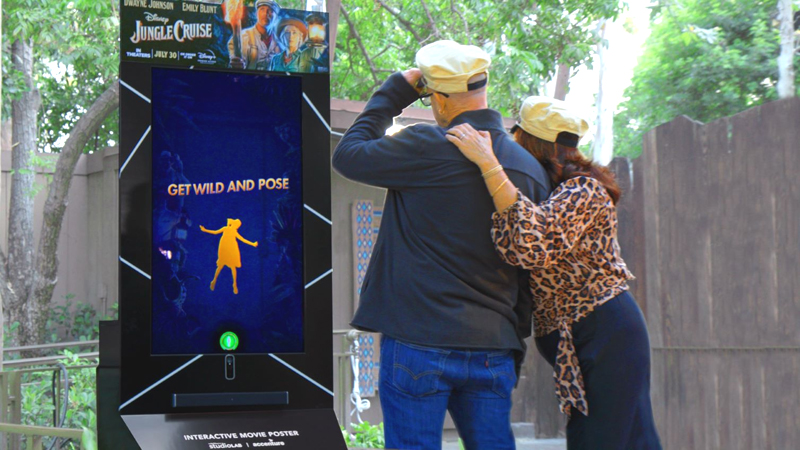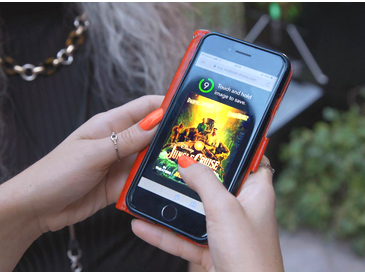
A technology unit of Walt Disney Co. is field trialing what it calls an “interactive” film poster where viewers’ responses are evaluated to help choose what poster is presented. The major consultancy Accenture assists Disney in the interactive movie poster (IMP) project.
The initiative started quietly with 2017 release “Dumbo.” Field trial means the initiative engages consumers on a limited basis to test results and then to further develop, depending on what is learned. “The interactive movie poster used sophisticated software and hardware — including artificial intelligence and 4D cameras — to recognize and respond to individuals’ emotions by showing film clips that fit a person’s current mood,” an Accenture press release says.
Playback is via a purpose-built video kiosk that consists of a screen, soundbar and camera sensors. The kiosk can be built into a wall or stand upright from the floor. Also, consumers can call up posters on their personal digital devices such as smart phones.
The Accenture press release continues: “The updated model of the interactive movie poster was first deployed at the El Capitan Theatre in Hollywood for the premiere of Marvel Studios’ ‘Black Widow’ earlier this year. It was also used to engage with visitors at Disneyland during the ‘Jungle Cruise’ premiere, and at the premiere of Searchlight Pictures’ ‘Nightmare Alley’ this December.”
Searchlight is a Disney theatrical distributor concentrating on upmarket moderately-budgeted independent films. The IMP kiosk has been placed at Disney movie premieres and in some Accenture spaces.
“Some experiences produce shareable content (such as a photo) that users may download via a QR code that they use their phone to scan,” a spokesperson says. “Other experiences allow users to interact via their phone, using their phones as a ‘remote control.’ ”

The Disney-owned technology unit is StudioLAB, which harnesses cutting-edge technologies such as immersive entertainment and artificial intelligence, often in partnerships that in this case is with Accenture.
The press release quotes Alice Taylor, VP of content and innovation at StudioLAB, saying, “The new advanced posters increase engagement by offering personalized experiences — for example, users can insert themselves in the movie poster and share that image instantly with friends or family. It transforms our audience’s journey beyond just the main feature at the theater.”
Traditional billboards have already gone digital. Instead of static paper sheets, a growing number of modern billboards are video screens that can flip through preloaded images. For an outdoor billboard, on a sunny summer day advertisers can place suntan lotion advertisements and if it rains then replace with umbrella advertising. Sports events use video screens to present multiple ads in a rolling presentation.
As for IMP, Disney has the clout to drive the cinema industry as the leading theatrical distributor with a domestic market share accounting for more than one-third of boxoffice dollars — sometimes 40%. The rest is split by four other major studios and independent distributors.
Related content:
Leave a Reply